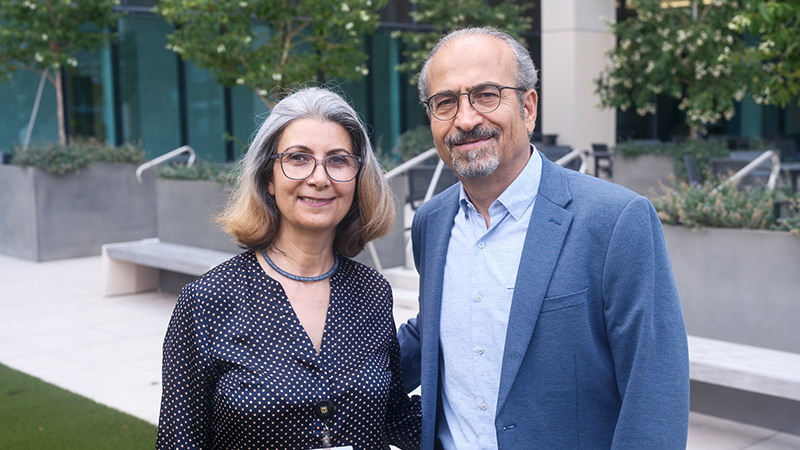
MU is one of four institutions nationwide to receive National Cancer Institute funding for research on activating the immune system against cancer
People often think a cure for cancer is the holy grail of medicine – an achievement like no other. What if, instead, the focus was on preventing cancer from ever growing?
Two researchers at the MU School of Medicine are discovering how to make cancer prevention a reality. Immunologist researchers Haval Shirwan and Esma Yolcu have joined the Cancer Immunoprevention Network consortium, an initiative launched in 2023 by the National Cancer Institute, or NCI.
They have developed a molecule that could train the immune system to identify and fight precancerous cells, stopping cancer progression. To fast-track Shirwan and Yolcu’s work to human clinical trials, the NCI has awarded the team nearly $3.8 million over five years to cover research expenses.
Shirwan and Yolcu’s molecule stimulates immune cells and trains them to recognize cancerous and precancerous cells. While their research has so far focused on preventing lung and cervical cancer in mice, data indicates the molecule can work against multiple cancer types.
“Most of the time, after initial treatment, the cancer comes back. That’s, unfortunately, what happens because the cancer has already established a territory in the body, so recurrence is a major problem,” Shirwan said. “Cancer prevention and identifying cells before they become cancerous would avoid the need for a patient to go through standard treatments like radiation and chemotherapy.”
Other institutions in the network include Emory University, Harvard Medical School at Massachusetts General Hospital and Icahn School of Medicine at Mount Sinai. As network members, Shirwan and Yolcu will constantly communicate with the NCI and the other principal investigators to share project progress and discuss any obstacles.
Thanks to promising research, which includes the duo’s work, there has been growing interest in targeting and using the immune system for cancer prevention. If Shirwan and Yolcu’s cancer prevention molecule shows success in human clinical trials, it could lead to a monumental shift in how doctors treat patients at high risk for cancer.
“Individuals who may be predisposed to cancer and need additional screenings could receive this treatment,” Yolcu said. “This could be a one-time dose or something repeated, so you keep your immune system ready and prepared for any abnormalities.”
In the first two years of the grant, the researcher duo plans to expand their current models in mice. They hope that by the end of the grant’s period, they will be able to demonstrate the efficacy of this molecule in preclinical models that simulate cancer development in humans.
“I cannot tell you how excited I am about these findings,” Shirwan said. “The data is very compelling, and it will put MU on the map for innovation in cancer immunoprevention, an emerging field with significant clinical impact.”





